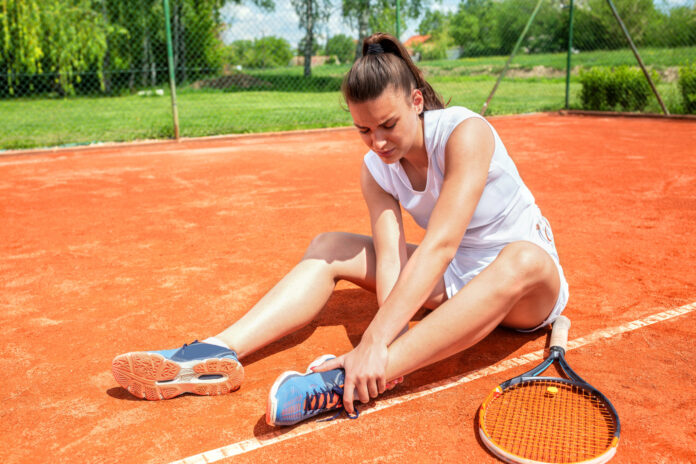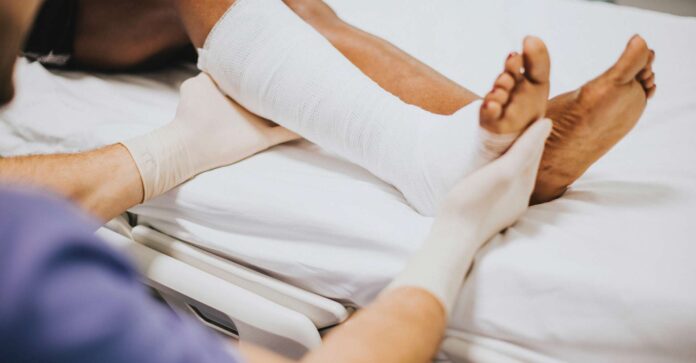Contents
Competing at the top level
A large number of young people opt for sports activities as children, which is very good from the aspect of their health and development. However, the demands of parents, coaches, and even themselves are increasing, and thus sports injuries are becoming more common. The popularity of professional sports brings an increasing number of activities, and to achieve that level, a large investment, sacrifice and work are needed, and that, of course, leads to a disproportionate number of injuries compared to earlier when sports activity was in schools through physical education.

Engaging in daily training and physical activities is a regular feature of athletes because it helps increase their work potential when they participate in their specific sport or exercise. However, with constant and repetitive movements, the human body can eventually experience degenerative changes that can lead to damage or injury to body structures, as well as develop or worsen a pre-existing condition. In addition, an accident during the training of a specific sport or physical activity of an athlete can lead to various types of sports injuries, which can affect not only their physical but also their mental health.
Although some forms of sports injuries are more commonly diagnosed in athletes, occasionally, individuals may be exposed to a unique circumstance in which a rare type of injury can occur. When it happens, the first and most important thing is getting proper medical care. Modern time brings modern and innovative solutions in every aspect of our life, including medicine. That is why today, medical institutions have a lot of specialists that have knowledge and experience in dealing with (sport) injuries, such as 7 Dimensions, a Medical Centre that provides exceptional care for any type of health problem.
Psychological effects on injured athletes

Another factor is the psychological barrier that most people and athletes suffer after an injury. Namely, it is about knowing about the whole process that they went through – surgery, therapy, and recovery, which afterward results in the patients already implementing certain restrictions when engaging in sports activities, even though they are fully capable of engaging in them. It takes a lot of time for the patient to return mentally (psychologically) to the pre-traumatic state. There are also a large number of practical and popular preparations, therapies, and procedures that can also help psychological patients feel better. Undoubtedly 70-80% of them return to a form identical to the one that was before the injury, both mentally and physically.
Experts in the field of sports psychology are working hard to develop plans and programs for athletes, coaches, and families to help in coping with this difficult situation. Psychology in sports is a complex scientific discipline that requires knowledge of many other areas of psychology, primarily personality psychology, social psychology, the psychology of interpersonal relationships, mental hygiene, and others. Due to its complexity, the psychology of sports requires a multidisciplinary approach that involves good knowledge and integration of knowledge of other sciences such as medicine, pedagogy, sociology.

Physical fitness, technical and tactical skills are aspects that make up the readiness of a particular athlete, but if there is a lack of mental strength, everything else could fall apart. One can categorize it in many ways, but simply put, it is self-confidence and calmness. The athlete will not reach and present their full potential or be able to manifest their physical maximum if they lack mental preparation, especially coming back from injury. A large number of athletes did not succeed in professional sports at the highest level precisely because of mental instability or lack of faith (mostly unfounded) in their abilities, or not being mentally prepared to come back after the injury.
Injury is something that is, unfortunately, a pretty common occurrence in any sports. Every athlete will tell you that one of the disadvantages they may experience is precisely that, and it can affect them in many ways. First, the injury can lead to an interruption of training (coaching). Secondly, participating and competing is part of their identity, and sports are a huge part of their lives. When, in a short period of time, all of that is gone, it could have a big potential psychological impact on their overall health.
Understandably, athletes can undergo a series of psychological reactions and stress when they become injured. Athletes’ psychological experiences differ because no person experiences injuries in exactly the same way.
Of course, experiencing these emotions is quite normal, as it is a response to trauma. But not everyone similarly deals with that, as some of them seem to be resolved and emotionally driven, and on the other hand, others seem to struggle emotionally.
Signs of emotional distress

Although no one can fully predict their behavior and response to injury, in most cases, they show three classes of response. To help dispute their injury, athletes often try to obtain and interpret information that may be relevant to the injury (e.g., “How bad is it?”, “How long?”, “What can / can’t I do?”).
Often athletes may ask questions or have thoughts that are as follows: “I can’t believe this happened today,” “I’ll never get back to 100%,” and “I’m not good for the team today.”
Some of those signs are:
- Anger and confusion
- Obsession over recovery time
- Pushing boundaries
- Rejecting everything that happened
- Sleep disorders (you can read more about them on the MidNite blog)
- The mental and emotional self-isolation
- Changes in diet
- Mood variation
- Guilt
Research has shown that negative emotions experienced by injured athletes can affect athletes’ attitudes and later recovery from trauma.
Athletes daily engage in a variety of exercises to prevent damage or injury from their specific sports or physical activities, as well as to promote and maintain strength, mobility, and flexibility. However, when injuries or conditions occur as a result of an accident or due to recurrence of degeneration, obtaining appropriate care and therapy can change an athlete’s ability to return to play as soon as possible and regain his or her original health.
Conclusion
What is certainly essential is that when we start with sports activities, we should, first of all, be well informed, warm up well, train properly and have quality stretching in the end. We live at a fast pace, and we would all like to achieve as much as possible in the shortest possible time. The main advice is balance in any type of activity and listening to your body. Every joint and muscle will give every person a limit on what is realistically possible, and they only need to listen to it. Moderate physical activity and upgrades will help at preventing any type of potential injury.
















